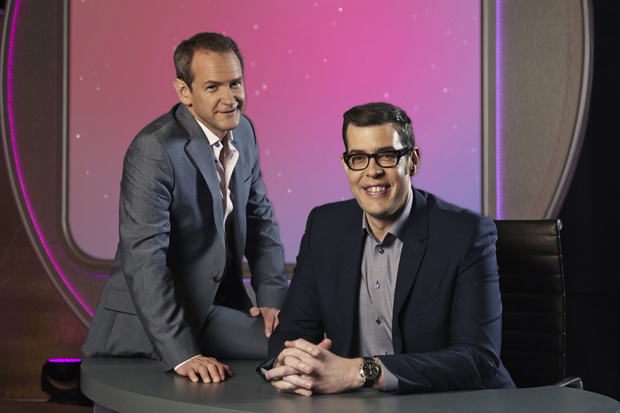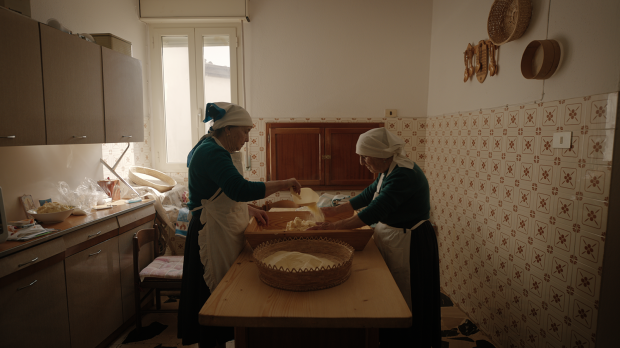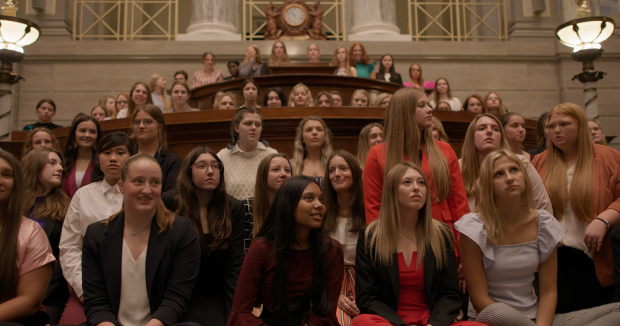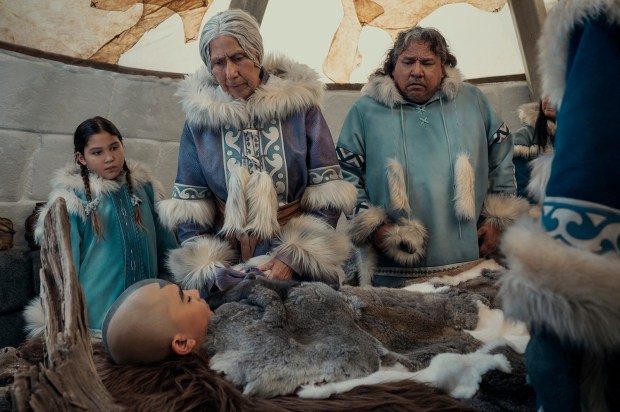Ever since Boy got back from school my work schedule has fallen to pieces. Every few minutes, just when I’ve got my concentration back after the last interruption, Boy will burst into the office and say, ‘Dad, Dad. How good are you on obscure New Zealanders?’ Or, ‘Quick, Dad, it’s your subject: reptiles!’ Or, ‘Dad, this is ridiculous. Only four people recognised Johnny Marr.’ And so on and on it goes.
If I were a stricter parent or a more self-disciplined worker, I wouldn’t let this happen. Problem is, the programme we’re talking about here is Pointless (BBC1, Mondays) and I’m afraid I’m just as addicted as Boy is. Helpless, I find myself being drawn by an irresistible force towards the TV room where I stand transfixed (kidding myself that if I stand rather than sit it makes it OK) before the screen, congratulating myself on all the obscure answers I know, enjoying the banter between the two presenters, then, obviously, staying to the end to find out whether the finalists have managed to get a pointless answer.
Everything about Pointless is so perfect — the chemistry between Alexander Armstrong and Richard Osman, the throwaway wit, the genius USP whereby only the most obscure answers win — that it seems almost inconceivable it was ever not going to be a hit. But when it started in 2009 it was considered no more than a punt. Indeed, that was the only reason Armstrong was persuaded to be on it. He’d been offered a much grander job presenting Countdown but turned it down for fear that so prominent a role might typecast him as a game-show host. Now his worst nightmare has come true, as Pointless has turned into probably the most popular quiz show in Britain, eclipsing even its (similarly addictive) ITV rival The Chase.
Osman, meanwhile — whose job is to sit behind a desk, explaining the point of each challenge, coming up with amusing stats, and making gloriously terrible deadpan jokes — was never intended to be the co-presenter. He just happens to have been part of the Endemol creative team that devised the show and filled the role, purely for demonstration purposes, when a test version was shown to the BBC. I’m still quite astonished they kept him. He was a contemporary and mate of ‘Xander’s’ from their days together at Trinity College, Cambridge. Doesn’t the BBC have rules against such outrageous elitism?
Without the Oxbridge-meets-daytime-TV clash of high-brow and low-brow, the show wouldn’t work half so well. Armstrong and Osman don’t despise their contestants — not at all: their affection for them is obvious — but they don’t pander to them either. Armstrong has developed a brilliant distrait technique where he manages to sound both fascinated and utterly bored by the contestants’ vouchsafed biographical details, meaning he can allow them to ramble on or brutally cut them off just as he pleases. Osman, meanwhile, is like a wry, amused, effortlessly superior don. If you’ve come up with a ‘terrific’ answer, he’ll tell you. But though he’s never cruel, he does have a way of hinting ever so gently that the answer you’ve just given hasn’t necessarily shown you in the brightest intellectual light. When, say, you’ve been asked the surname of the ‘William’ who wrote Hamlet, and the answer you’ve come up with is ‘Tell’.
I really wish I could be quite so enthusiastic about Quizeum (Wednesdays), a new BBC4 show that would clearly love to be even halfway as popular as Pointless or, failing that, Only Connect. And that, I think, is its fundamental problem. Everyone involved behaves like kids who’ve dosed up on Sunny D: laughing and grinning and mugging — all in an apparently desperate attempt to persuade any wavering viewers that even though it’s filmed in a museum and involves experts talking about artefacts, the main point of the exercise is that everyone is having fun, fun, FUN.
On paper it ought to work quite well. It’s presented by the likeable Griff Rhys Jones and the experts in each of the two teams — at least on the first episode, recorded at the Ashmolean Museum — came across as proper ‘characters’ that you nevertheless didn’t feel like strangling. (I’d happily see more of Lars Tharp and Dr Janina Ramirez, especially.)
Unfortunately, though, the vital quiz element hasn’t been properly thought through. Rhys Jones appears to award points largely at random and the lack of a sense of competition gives the whole show an aimless feel. It’s like turning up late to a dinner party where the other guests, though evidently bright and amiable, are all half-cut and talking over-animatedly (and over one another) about stuff you don’t find half as interesting or funny as they do.
Got something to add? Join the discussion and comment below.
Get 10 issues for just $10
Subscribe to The Spectator Australia today for the next 10 magazine issues, plus full online access, for just $10.
You might disagree with half of it, but you’ll enjoy reading all of it. Try your first month for free, then just $2 a week for the remainder of your first year.















Comments
Don't miss out
Join the conversation with other Spectator Australia readers. Subscribe to leave a comment.
SUBSCRIBEAlready a subscriber? Log in